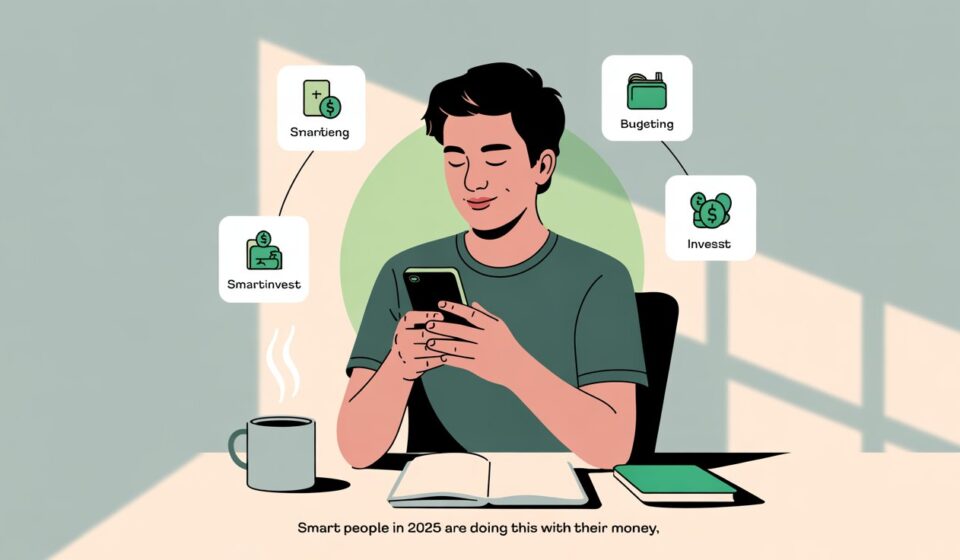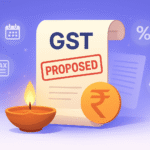
Smart People in 2025 Are Doing This With Their Money
smart money habits 2025 are simple. They help you grow money and sleep better. This post gives practical tips anyone can use today.
Table Of Content
- Why smart money habits 2025 matter
- Main smart money habits 2025
- 1. SIPs in Mutual Funds – What it is and why it helps
- 2. Learning Digital Skills – How it raises income
- 3. Saying No to Credit Traps – How to avoid costly debt
- 4. Spending Less, Investing More – small swaps that free cash
- 5. Reading 1 Money Book / Month – learn as you go
- 6. Filing ITR Smartly – keep records and avoid trouble
- 7. Using Cashback & Rewards – get benefits, not excuses
- 8. Budgeting Weekly – simple method you can follow
- Quick 7- point Starter Checklist for smart money
- FAQs on Personal Finance
- How much should I start investing each month?
- Is SIP better than one-time mutual fund investment?
- Do I need to learn coding to earn more?
- How do I avoid credit card debt?
- What documents do I need to file ITR?
- Conclusion
You will get clear steps. Also a quick checklist you can copy.
Why smart money habits 2025 matter
Money moves fast today. Prices rise. Jobs shift with new tech. So habits matter more than luck.
- They protect you from inflation.
- They make money work for you, not the other way round.
- They reduce stress and last-minute money panic.
Start small, and keep going. That habit beats waiting for the perfect tip..

Main smart money habits 2025
Below are habits smart people follow. For each, a short explanation and one action step you can do today.
1. SIPs in Mutual Funds – What it is and why it helps
A SIP (Systematic Investment Plan) lets you invest a fixed amount each month.
It uses rupee-cost averaging to smooth price swings. For example, invest ₹2,000 per month. Over time, this builds a good habit and a decent corpus.
Action: Start a SIP for ₹2,000/month in a balanced or large-cap fund today.
Bold takeaway: Start small and stay consistent – that matters more than timing the market.
2. Learning Digital Skills – How it raises income
Digital skills make you more valuable at work. Skills like Excel, basic coding, or digital marketing are in demand. They help you earn extra money or switch jobs.
Start with free lessons online. Coursera, edX, and YouTube have good intro modules. Finish the first module to build momentum.
Action: Pick one free course and finish module one this week.
Bold takeaway: A small skill can lead to a real pay bump over months.
3. Saying No to Credit Traps – How to avoid costly debt
Buy-now-pay-later and easy EMIs tempt us. However, high interest and fees add up quickly. They reduce your future cash flow.
Instead, set a clear rule. Do not use EMI for non-essential wants. Only use credit for emergencies or essential investments.
Action: Set a rule: “No EMI for wants.” Use EMIs only for real needs.
Bold takeaway: Avoid payments that cost too much interest.
4. Spending Less, Investing More – small swaps that free cash
You do not need a big salary to invest. Small cuts free money. For example, stop one unused subscription. Make coffee at home twice a week instead of buying takeaway.
Then move that saved money to investments. Even ₹500 a month compounds significantly over time.
Action: Cancel one unused subscription. Move the saved money to your SIP.
Bold takeaway: Tiny cuts can free real investment money.
5. Reading 1 Money Book / Month – learn as you go
Books give steady knowledge. They help your decisions and calm fear. Read simple, practical books. For beginners try:
Starter books:
- The Little Book of Common Sense Investing (Bogle)
- The Richest Man in Babylon (Clason)
- Rich Dad Poor Dad (Kiyosaki) – read critically
- I Will Teach You To Be Rich by Ramit Sethi
Action: Choose one book this week and read 10 pages daily.
Bold takeaway: Reading makes money decisions calmer and smarter.
6. Filing ITR Smartly – keep records and avoid trouble
Filing ITR on time avoids fines. It also helps with loans later. Keep basic documents handy. Form 16, bank statements and proofs of investments matter.
If you have freelance income, keep invoices. If salaried, keep Form 16.
Docs to keep: Form 16, bank statements, investment proofs. ITR means Income Tax Return.
Action: Gather Form 16 or salary proof this week.
Bold takeaway: Timely filing avoids penalties and helps future loans.
7. Using Cashback & Rewards – get benefits, not excuses
Cashback and rewards cut costs. But they can also encourage needless spending. Use them only where you already plan to buy.
For example, use a cashback card for groceries. Avoid using rewards to buy things you don’t need.
Action: Enable one cashback card or app for groceries only.
Bold takeaway: Use rewards to lower costs, not to buy extra things.
8. Budgeting Weekly – simple method you can follow
A weekly budget keeps money in control. It is small and flexible. Use this rule: Income − Musts − Wants = Save.
Musts are bills and food. Wants are small treats. Save is for investment and emergency funds.
Simple method: Income − Musts − Wants = Save.
Musts pay bills. Wants are small treats. Save is your investment pot.
Action: Make this week’s budget in 10 minutes.
Bold takeaway: A weekly plan prevents small leaks from becoming big ones.
Quick 7- point Starter Checklist for smart money
- Start a ₹2,000 SIP today.
- Cancel one unused subscription.
- Finish one module of a free digital course.
- Set “no EMI for wants” rule.
- Enable one cashback card for groceries.
- Collect Form 16 or salary proofs.
- Make this week’s budget.
Use this as your one-week sprint.
FAQs on Personal Finance
How much should I start investing each month?
Start with what you can. Even ₹500/month helps. Aim to increase over time.
Is SIP better than one-time mutual fund investment?
SIPs suit regular savers. They reduce timing risk. Lump sum can work in rising markets.
Do I need to learn coding to earn more?
No. Basic digital skills like Excel or SEO also help. Choose what fits your job.
How do I avoid credit card debt?
Pay full balance each month. Avoid cash advance and high-interest EMIs.
What documents do I need to file ITR?
Form 16, bank statements, proof of investments, and rent or loan receipts if applicable.
Conclusion
Good money habits are simple and repeatable. Start one habit today. Then add another next week.



